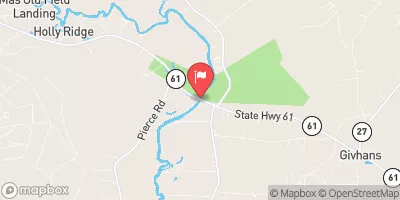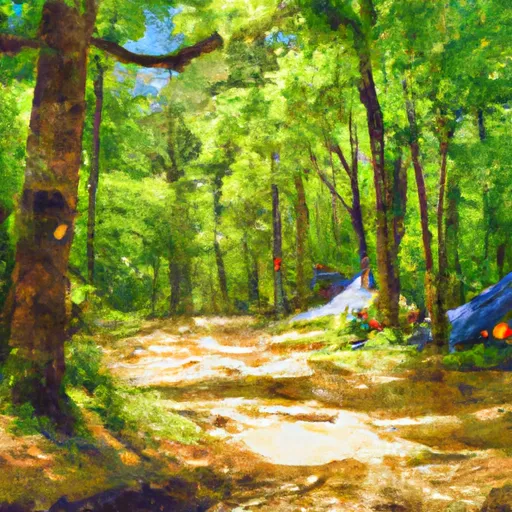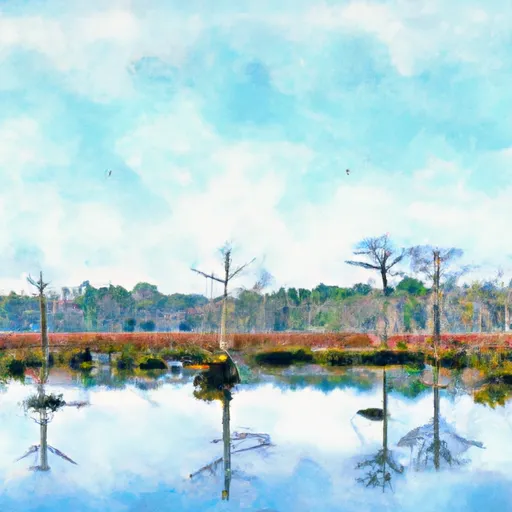Summary
The pond is home to a variety of fish species, including largemouth bass, bluegill, and catfish. These species are prevalent throughout the year, making the pond a great spot for fishing enthusiasts.
In addition to fishing, there are several nearby activities to enjoy, such as hiking, camping, and picnicking. The pond is surrounded by beautiful forests and wildlife, making it a great place to relax and enjoy nature.
When it comes to fishing tips, anglers should use live bait such as worms or crickets for bluegill and catfish, while bass can be caught using a variety of artificial lures. It's also important to fish near structure such as fallen trees or brush piles, as these areas tend to attract more fish.
The best time of year to visit Upper Nebo Pond is during the spring and fall months, when temperatures are mild and fish are most active. Average temperatures during these seasons range from 50-70°F, providing comfortable conditions for fishing and outdoor activities.
Overall, Upper Nebo Pond is a great fishing destination for anglers of all skill levels, offering a variety of fish species and nearby activities to enjoy.
°F
°F
mph
Wind
%
Humidity
15-Day Weather Outlook
5-Day Hourly Forecast Detail
Nearby Streamflow Levels
 Back River At Dupont Intake Nr Kittredge
Back River At Dupont Intake Nr Kittredge
|
3360cfs |
 Santee River Nr Jamestown
Santee River Nr Jamestown
|
220cfs |
 Lake Moultrie Tailrace Canal At Moncks Corner
Lake Moultrie Tailrace Canal At Moncks Corner
|
451cfs |
 Turkey Creek Near Maryville
Turkey Creek Near Maryville
|
2cfs |
 Edisto River Nr Givhans
Edisto River Nr Givhans
|
1440cfs |
 Santee River Near Pineville
Santee River Near Pineville
|
698cfs |
Angling Safety Guidelines
Check local fishing rules, seasons, size limits, and license requirements to ensure legal and sustainable angling.
Handle Fish Responsibly
Use wet hands, minimize air exposure, and release fish gently to improve survival rates when practicing catch-and-release.
Choose the Right Gear
Match your rod, line, and tackle to the species and conditions to increase success and reduce unnecessary harm to fish.
Respect the Waterway
Avoid disturbing habitat, prevent bank erosion, and keep a safe distance from spawning areas to protect ecosystems.
Keep It Clean
Pack out all line, hooks, bait containers, and trash—discarded gear can injure wildlife and degrade waterways.
Related Links
Area Campgrounds
| Location | Reservations | Toilets |
|---|---|---|
 Halfway Creek Trail Camp
Halfway Creek Trail Camp
|
||
 Buck Hall Recreation Area
Buck Hall Recreation Area
|
||
 Buckhall
Buckhall
|

 Lower Nebo Pond
Lower Nebo Pond
 Middle Nebo Pond
Middle Nebo Pond
 Willow Hall Pond
Willow Hall Pond
 Gator Pond
Gator Pond
 Twin Ponds
Twin Ponds
 Radford Bates Dam
Radford Bates Dam
 National Wildlife Refuge Francis Marion
National Wildlife Refuge Francis Marion
 Cape Romain Wilderness Area
Cape Romain Wilderness Area
 Wilderness Little Wambaw Swamp
Wilderness Little Wambaw Swamp
 Wilderness Wambaw Swamp
Wilderness Wambaw Swamp
 Palmetto Islands County Park
Palmetto Islands County Park